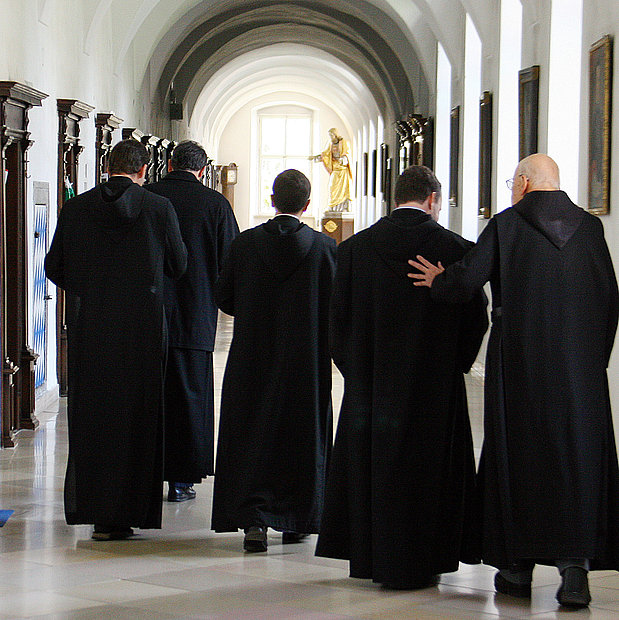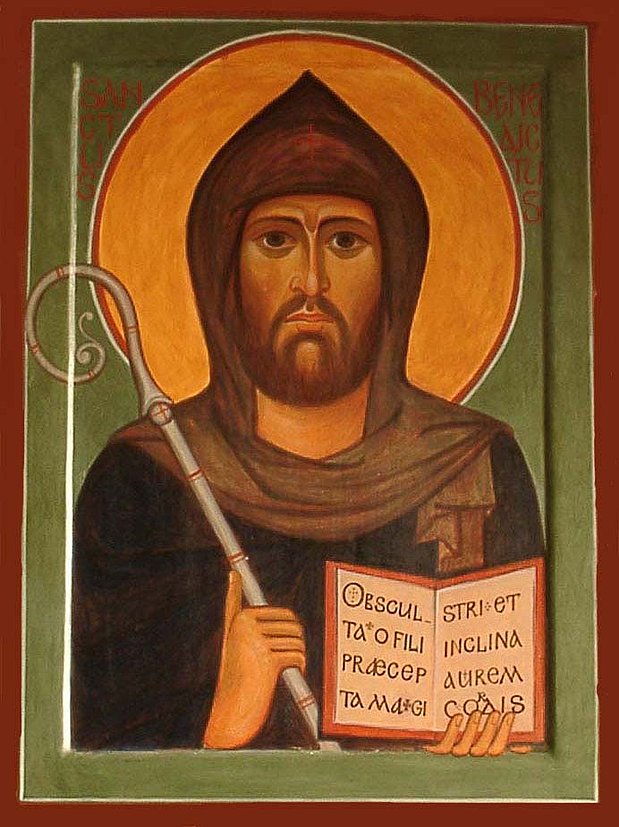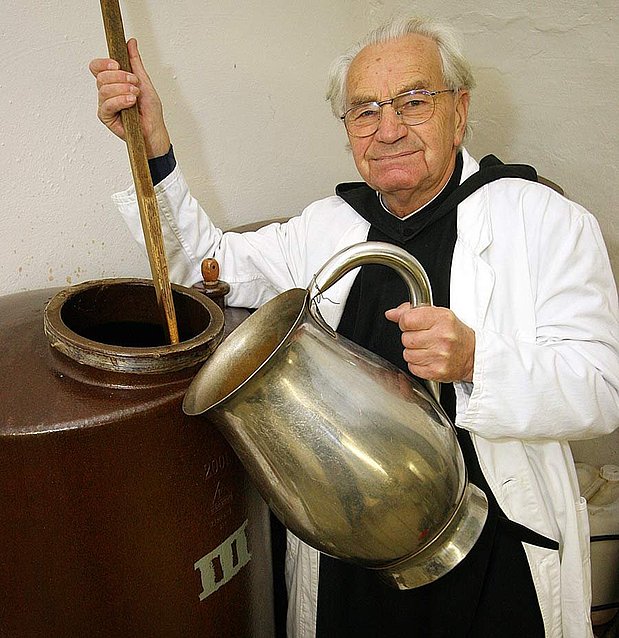Our Community
We are a community of 22 monks brought together through the Call of God that each of us heard in faith and followed in trust. Despite differences in nationality, age, education, vocational training and despite the distinction between Priest and Brother monks, we are - despite the dissimilarities - "all one in Christ." (The Rule of St. Benedict, 2,20. C.f., Gal 3,28) As opposed to conceiving of our community as a static entity, we see ourselves on a unfolding journey
- to a life-world mandated by both St. Benedict's Rule and the illustrious eastern monastic tradition
- which takes on concrete form in our life-long commitment to the Monastery of Niederaltaich where monks (except from 1803 to 1918) have lived and prayed since 741.
In the first chapter (verse 35-39) of the Gospel according to St. John, it is reported that John the Baptist was standing in the company of two of his disciples. As The Lord Jesus walked by, The Baptist declared, "Behold! There is the Lamb of God." The disciples immediately turned from The Baptist and followed behind Jesus, who asked them, "What do you seek?"
The disciples answered Jesus' question with one of their own. "Rabbi," they asked, "where do you live?" The disciples' question attests that they are also on a journey to find a Place worthy of being their home. The disciples' experience of being adrift and homeless in an alienating world ended when they found and followed Jesus. A Benedictine monastery is also God's house, a permanent Home for the monk, the erstwhile wayfarer, where he by means of daily prayer and the Holy Mass, lives in communion with Christ.
Inasmuch as the daily communion with Christ is the aim and purpose of a Benedictine monastery, it is hardly surprising that our vow of stability - a solemn promise binding us to permanent residency and a life-long commitment to our monastic community - is a defining feature of St. Benedict's Rule. With our vow of stability, we not only promise to "abide" (John 15,4) in our cloister until death, but our promise also obliges us to employ all of our personal capacities (labor power, education, patience and most importantly, love) to "bear fruit in plenty" (John 15,5) for the good of the monastic community, and in return, be supported and carried by the community (John 15,7).
Along with stability, we also vow to be obedient. We solemnly promise to faithfully obey and follow the directives of the Holy Gospel and to heed the demands of our Abbot and also to comply with requirements we daily face in our monastic community. Through the practice of obedience, the permanent life- long willingness to follow the Holy Gospel and to serve God in our community, we experience the "New Life" that was bestowed on us by virtue of our baptism, and which through our vows of stability, fidelity and obedience, will hopefully continue to blossom and bear what St. John calls "fruit in plenty."
Although labor is an important component of Benedictine life, the question of work - that is, the duties that each monk performs - is, however, secondary. The essential fundamental component of monasticism is a God-inspired daily routine hallmarked by prayer, work and spiritual reading. We not only encounter God's presence in the daily Holy Mass and in our daily Divine Office, but we also encounter God alone in the seclusion of our cell. We believe Christ is equally present in our work-related duties and in the presence of our fellow cloister brethren, and finally we firmly believe Christ is also present in people we meet and serve in our monastery.




